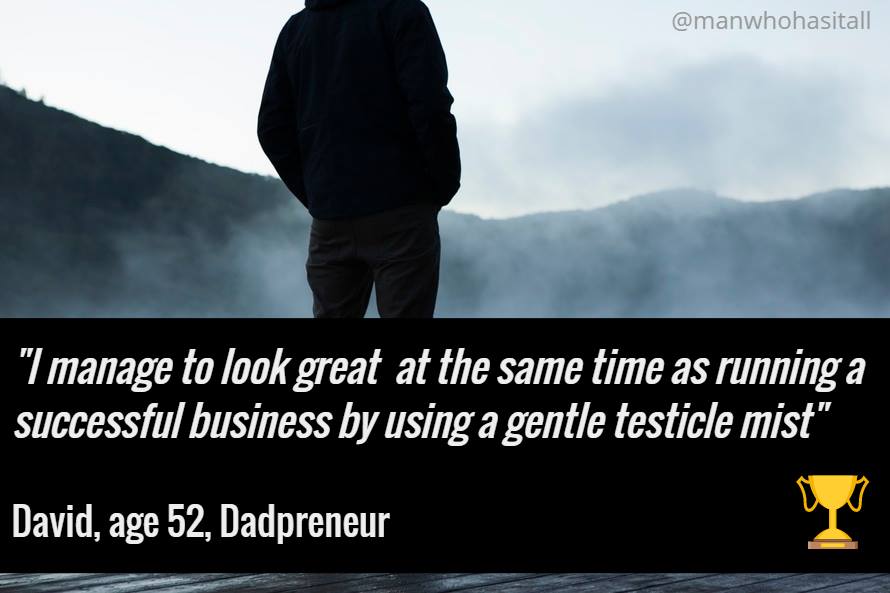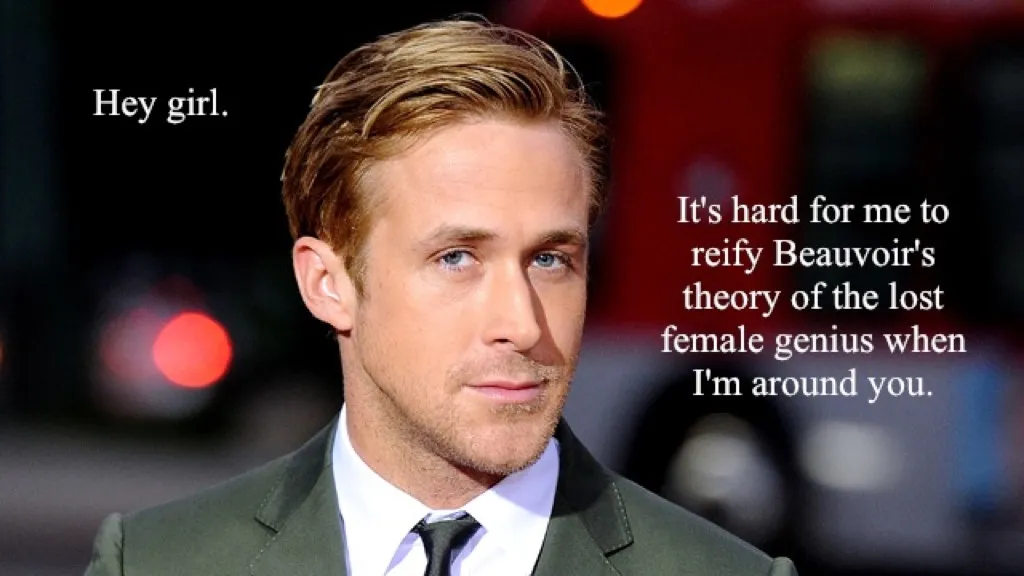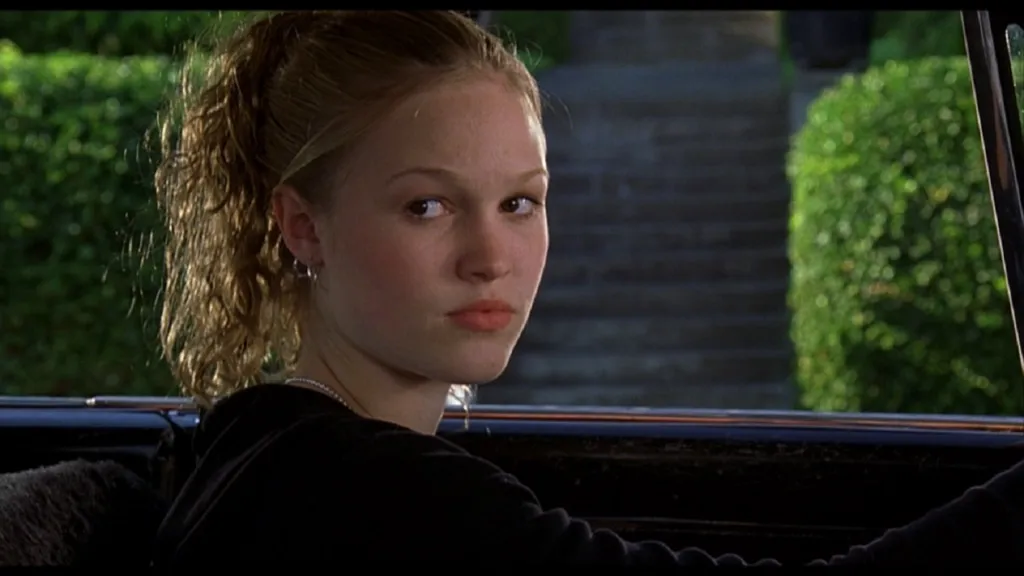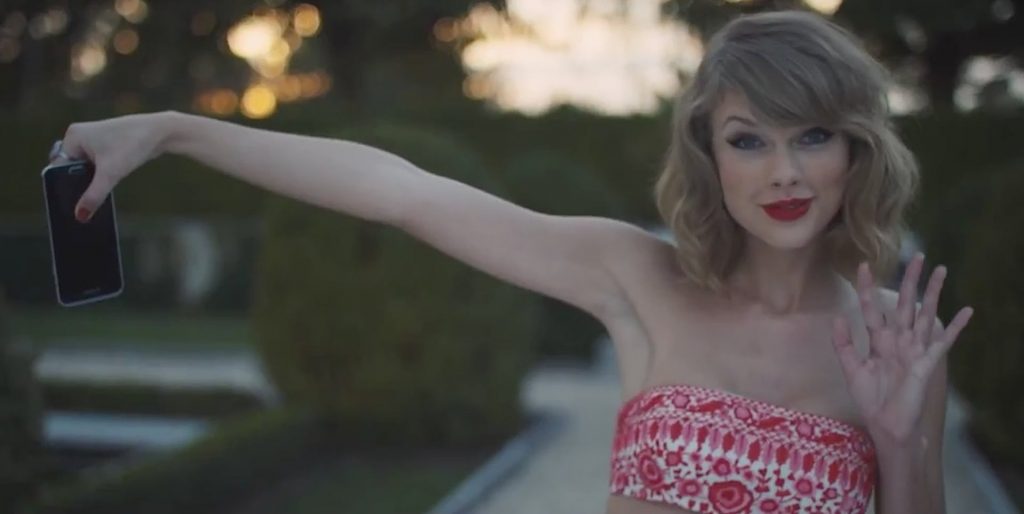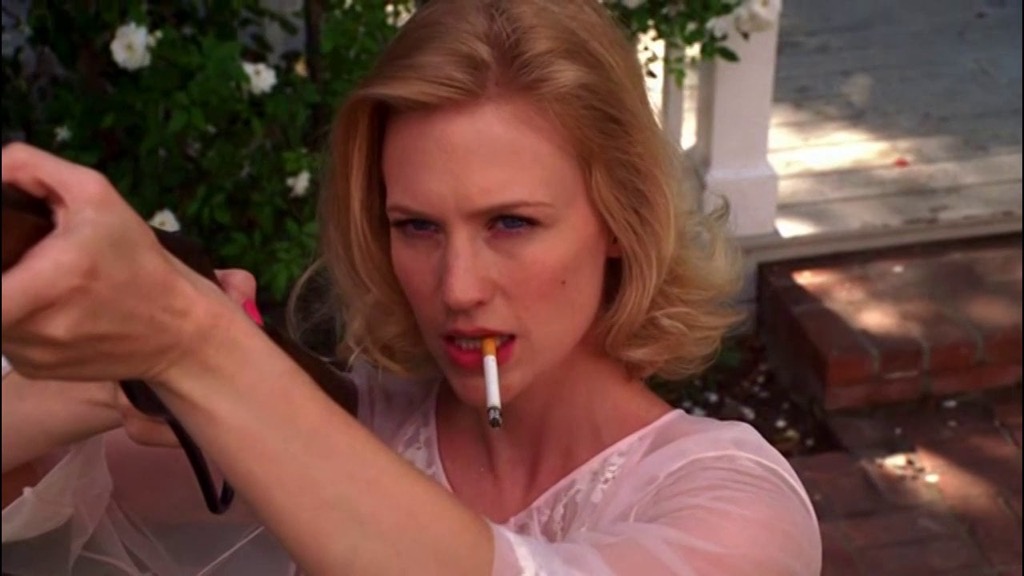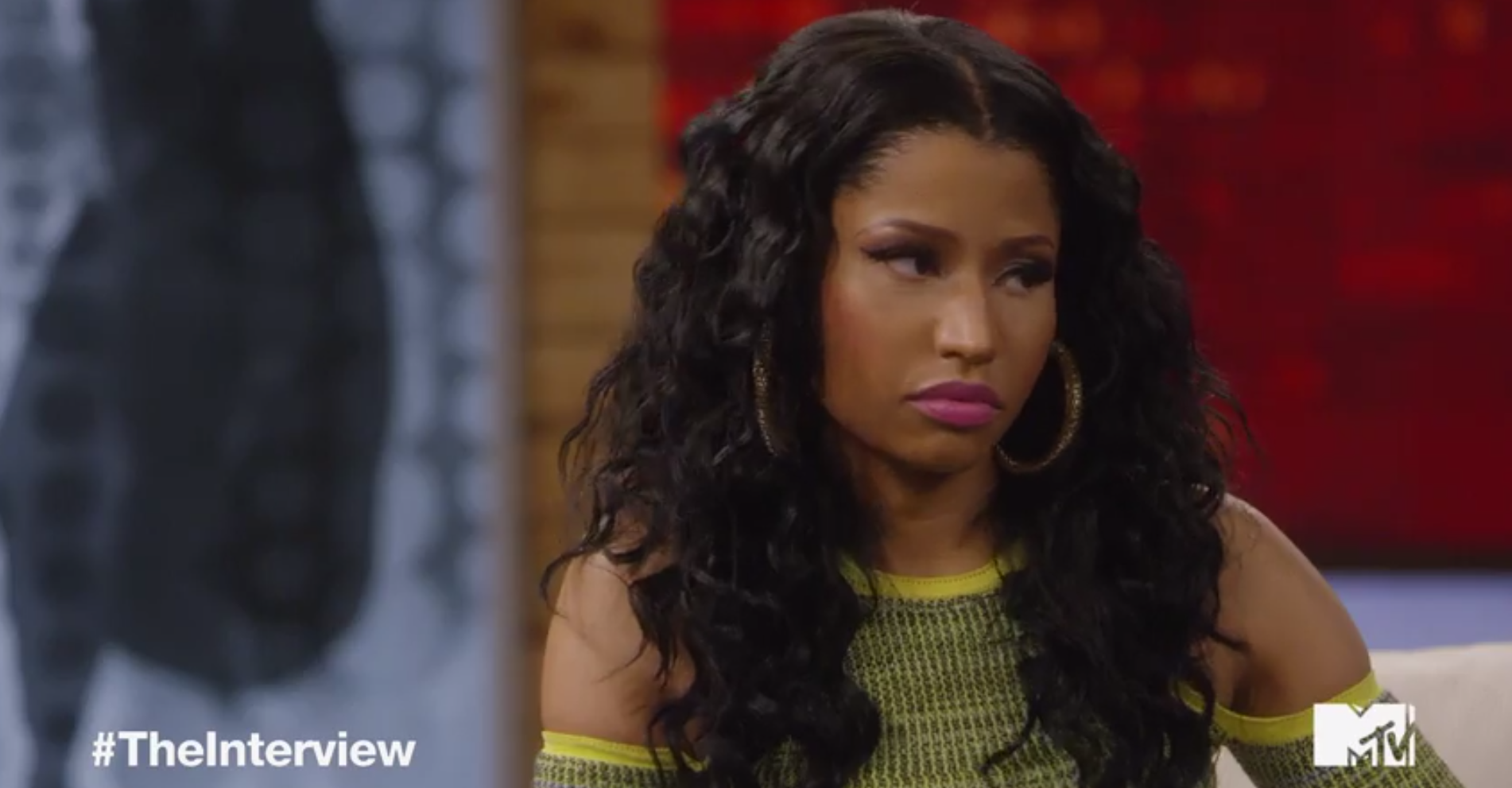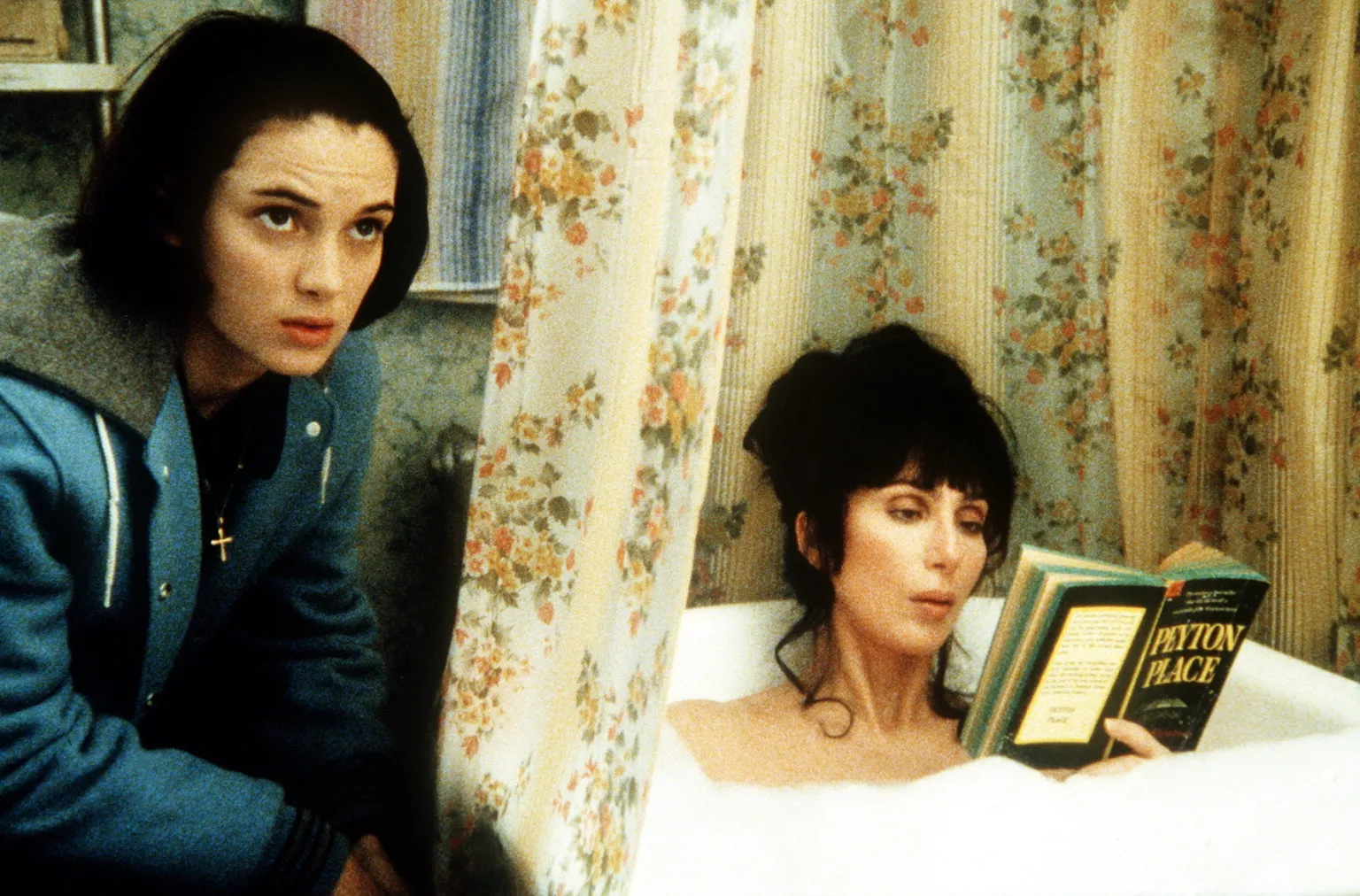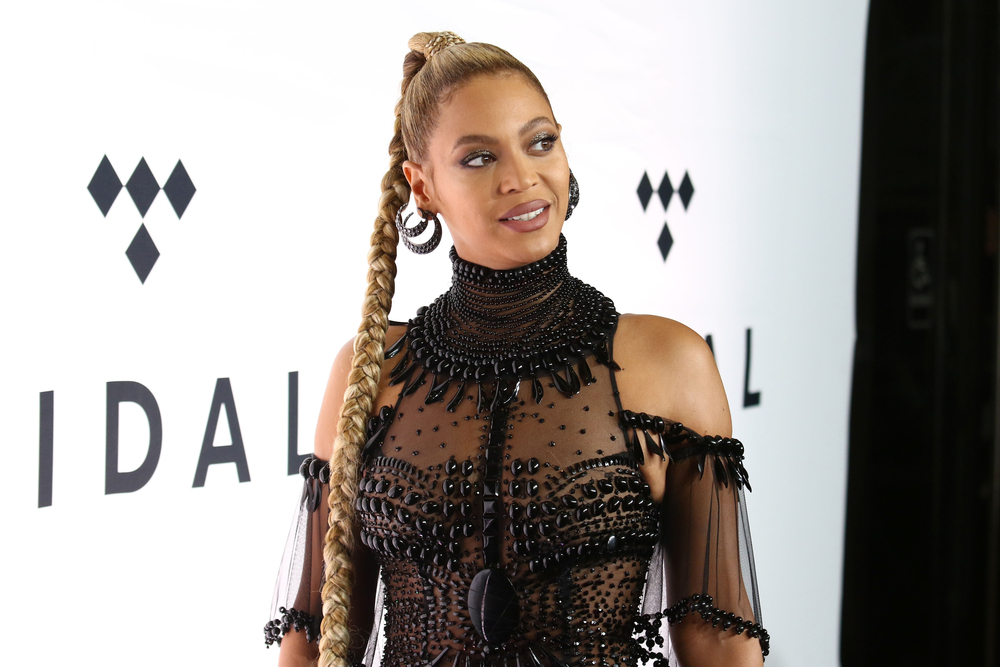‘Feisty’ is one.
‘Bossy’ gets a lot of press.
And don’t get me started on ‘working mother’. How many men have you heard described as ‘working fathers’, let alone ‘dadpreneurs’?
Subtly sexist words about women and girls.
Not the obvious, awful insulting words (which are depressingly many and varied), but the ones that fly under the radar, and contribute to a culture that undervalues women.
I started writing them down a little while ago. I was musing on how men don’t get complimented on being ‘bubbly’ or ‘chatty’, and that these are behaviours that are, well, unthreatening to men: is that why they are compliments?
And doesn’t the act of writing for all the world to see sound less brave and revolutionary when you slap a label on it like ‘mummy blog’?
I got to a list of seventeen before asking my friends at the Feminist Mothers Aotearoa Facebook group for their un/favourite examples.
Last I looked, the thread had 425 comments and replies. I’ve added most of the suggestions to this list, though I’ve omitted a great number of the direct insults that we can all recognise as sexist (even if some people think they are acceptable for use.)
The list has gone from my seventeen to 122 words or phrases used against women.
Is this trivial? Should we spend our time on something more important? Here’s Dotty Winters’ take on the question:
Women are either equal to men, or they aren’t and language that goes unchallenged is one of the many ways we allow inequality to lurk around in the dusty corners of offices. There are huge and shocking implications for gender inequality worldwide. People die, are refused healthcare, or suffer attack as a result of gender. Faced with these atrocities it can feel petty to gently challenge the unequal use of the word ‘abrasive’ but the same system perpetuates both behaviours and it’s all based on the same flawed logic.
[Read more at Standard Issue.]
This is what I think: the world would be a better place if everyone stopped talking about and to women like this, especially if it’s because they’re identifying and eradicating their own, sometimes unconscious, sexism.
Remember this pyramid? The words in today’s post are sprinkled liberally through all three of the bottom layers, and even higher.
Image description: Persona A: “It was just a joke! Why do you care?” Person B: “Sexual violence exists on a pyramid. Your joke contributes to a culture of violence.” Pyramid of five layers: 1: the top, pinnacle = murder; 2: rape, sexual assault, physical, emotional and financial abuse; 3: harassment, threats and verbal abuse; 4: traditional roles, glass ceiling, rigid gender-based stereotypes, 5: sexist/homophobic/transphobic jokes, problematic language, objectification. Artist: Ashley Fairbanks, used with kind permission.
And of course it’s not an either/or dichotomy. We can care about the language we use and still fight human rights abuses in Myanmar and child marriage around the world. Indeed, changing how we talk to and about women will help us dismantle rape culture and raise kids who are world-changers.
So here is my list so far of dozens of sneakily sexist words to get us all thinking. Please leave a comment with your response, and any ideas you have about making the world a better place for everyone.
You’ll nod in agreement with some of these examples, and be puzzled at the inclusion of others. Everything here is listed because a real woman has heard it in use and understood it to be used in a sexist way. Feel free to exclaim that you didn’t know a particular word could be sexist, but please don’t dismiss people’s experiences as you do so. I will be moderating the comments to ensure we have a friendly discussion. No sexist comments will be published.
A special thank you to my very favourite satirical Twitter account, @manwhohasitall, some of whose gems have been turned into graphics on Facebook, reproduced below. The best is on Twitter, though, so do go and follow her. (I’m going on record with my hunch that she’s a she.)
Double-standards: These words punish women for behaviour that is acceptable from men
These words are used against women who have ideas and opinions and are confident in expressing them
Bossy.
Abrasive.
A ball-buster.
Aggressive.
Shrill.
Bolshy.
Intense.
Stroppy.
Forward.
Mannish.
We can probably all agree that these are words people use to show criticism and disapproval. What’s less obvious is that they are sexist, for two key reasons:
- these words are used disproportionately often against women
- the behaviour they describe often goes unremarked in men.
Here’s some more context for this, again from Dotty Winters:
A 2014 study for Fortune.com by Kieran Snyder examined 248 reviews from 180 people, (105 men and 75 women). The reviews came from 28 different companies, all in the tech sector, and included a range of organisational sizes.
One word appeared 17 times in reviews of women, and never in any of the reviews of men: ‘abrasive’. Other words were disproportionately applied to women, including bossy, aggressive, strident, emotional and irrational. Aggressive did appear in two reviews of men, in the context of them being urged to be more aggressive. Reviews of women only ever used aggressive as a criticism. The gender of the person writing the review didn’t affect the results of the study.
[Read more at Standard Issue.]
Take action
When men and women display the same behaviours in, say, a workplace, men are much more likely to be called ‘assertive’ ‘confident’, ‘powerful’ or ‘a strong leader’, while women get this list.
How can we change things for the better?
- If you find yourself describing a woman with one of these words, ask yourself what you would say if a man behaved this way. Would you comment at all? How would you describe him? Think carefully before letting any of these words out of your mouth. Here’s a tough question to think hard about: is the problem with the woman or with you?
- If you hear someone else describe a woman this way, what could you say? Please leave suggestions in the comments below! One possible script, to attempt to open up conversation: ‘Hm, it’s interesting you call her ‘shrill’. I don’t hear men with strong opinions called that. Have you ever thought about that?’
- If someone describes you with these words, especially in a performance appraisal setting, calling out sexism can be a big deal.
Responding to professional (or any other) criticism is a complex dance of emotional intelligence, and each work setting has its own challenges. If you want to call someone on sexist feedback, you could try something like:
‘I’m interested that I’m being called ‘bossy’ and ‘opinionated.’ I wonder if you could help me sift through that feedback, and see what I can take from it. One concern I have is that studies show that women and men displaying the same professional behaviour get seen differently, with women being called ‘bossy’ and men ‘powerful’, for instance. How much of this feedback is because I’m a woman, do you think?’
Again, please leave your suggestions and wisdom in the comments below.
Anyone who is involved in giving performance appraisals, mentoring people or otherwise evaluating and describing human beings as a job, might want to stick this advice to journalists from Gloria Steinem on their walls (feel free to copy it and pop it in someone’s in-tray):
The most workable definition of equality for journalists is reversibility. Don’t mention her young children unless you would also mention his, or describe her clothes unless you would describe his, or say she’s shrill or attractive unless the same adjectives would be applied to a man. Don’t say she’s had facial surgery unless you say he dyes his hair or has hair plugs. Don’t say she’s just out of graduate school but he’s a rising star. Don’t say she has no professional training but he worked his way up. Don’t ask her if she’s running as a women’s candidate unless you ask him if he’s running as a men’s candidate. A good test of whether or not you as a reporter are taking sexism seriously is whether you would cite race, class, ethnicity, or religion in the same context.
[Read more in the The Women’s Media Center’s Media Guide to Gender Neutral Coverage of Women Candidates and Politicians, by Rachel Joy Larris and Rosalie Maggio, available as a PDF.]
These words are used against women, when similar behaviour by men goes unremarked
Gossipy.
Dramatic (as in Drama Queen).
Catty.
Bitchy.
Nag.
Cold.
Ice queen.
Shrew.
Humourless.
Man-hater.
Banshee.
Fishwife.
Lippy.
Ditzy.
-nazi, eg, Feminazi
Militant, eg, militant feminist.
-zilla, eg, Bridezilla
Diva.
Prima donna.
Blonde (how many men are said to have ‘blonde moments’?)
Have you ever heard a man called a gossip? I’ve certainly heard men engage in the activity, but not criticised for it very often. And as I read somewhere recently, if you think men don’t start ‘drama’, you need to pick up a history book.
Take action
Unkindness is unkindness, whatever the gender of the person practising it. If we need to speak about poor behaviour, let’s choose words that are not unfairly gendered.
- Before you comment on a woman’s tone or attitude, consider whether you need to at all. Seriously.
- If you do need to, choose a word that could equally describe a man’s behaviour. Say that someone is being unkind, rude, selfish or inconsiderate. English has plenty of options.
- Ask yourself if you speak critically about men as often as you do about women.
The Women’s Media Center has a several-page glossary of sexist terms with context and, critically, gender-neutral synonyms. Check it out whenever you think of a sexist word that you are in the habit of using and would like to change. Here’s their entry for ‘strident’, for example:
strident used primarily to describe women (especially feminists) indiscriminately and discriminatingly, “strident” (as well as “shrill”) has become a stereotype that means little more than “She makes me sick!” Alternatives include: harsh, jarring, raucous, dissonant, discordant, unharmonious, clashing, sharp.
[Read more in the The Women’s Media Center’s Media Guide to Gender Neutral Coverage of Women Candidates and Politicians, by Rachel Joy Larris and Rosalie Maggio, available as a PDF.]
Patronising words, with no male equivalent
Feisty.
Supermum.
Working mother.
Career woman (have you heard of ‘career men’? Or as they’re usually known, ‘men’?)
Yummy mummy.
Little old lady (I like to imagine that woman driving an ambulance in the World War II, or doing a family’s laundry without electricity.)
WAHM (Work-at-home mum): As Katie Macintyre wrote, “When I work from home I’m a “working from home Mum”. When my husband works from home he “has his own business” with no mention of the fact that he’s a Dad.”
Fierce. This one is newish, and seems to be used mostly by women applying it to themselves, and each other, without pejorative or patronising intention, but I reckon it can go either way. See for instance how flowery the illustrations of Shakespeare’s use of the word are in this Pinterest search:
And though she be but little she is fierce.
A Midsummer Night’s Dream, III, ii
Spirited. I can’t think that I’ve heard it of a man, except for groups and teams: ‘a spirited defence’.
(I’m not your) mother:
Take action
Stop using these words, eh? Or be careful to use words like ‘spirited’ and ‘feisty’ of men and boys too, if you enjoy using them in a positive way.
‘Working mother’ is a tricky one. It’s probably more useful for society to see both fathers and mothers as people who work both at home and in other jobs, so rather than abolish ‘working mother’, it might be nice to popularise seeing men as ‘working fathers’.
Andie Fox at Blue Milk writes some of my favourite stuff on how women’s care work is largely unacknowledged and unpaid. She’s an economist and a brilliant writer. Check out her stuff for more nuance:
On the economics of divorce: What Scott Morrison fails to understand about how divorce affects women
The truth about how your home life interferes with your work life
On in/equality in parenting (This one hit me like a train.)
These words insult women based on their sexuality and sexual expression
Slut.
Trollop.
Frigid.
Easy.
Tease.
Loose.
Man-eater.
Cougar.
Asking for it.
Prude.
The town bike.
And yes, about a hundred more, including some examples of things men had called real women I know that made me feel ill.
Take action
This one’s easy. Don’t comment on other people’s sexuality or sexual expression if you’re not, you know, participating in it.
A good test to use, if you really do need to talk about sexual behaviour – perhaps in the abstract, with a teenager – is, again, only to use language that fits people of any gender.
Try to take all the judgment and emotion out of what you’re talking about. It might be a challenge, and it’ll be good for everyone.
These sexist words about physical appearance aren’t used for men
Mutton dressed as lamb.
Slutty.
Curvy.
Mumsy.
Cheap.
(That dress is) flattering.
Frumpy.
Let herself go.
Faded beauty.
Mousey.
Plus-size (have you ever heard of a plus-size model who was male?)
Clotheshorse.
Brunette.
Take action
How other people choose to dress is none of anyone else’s damn business.
My mother was, of course, correct in her advice: if you can’t think of anything nice to say, just say nothing at all.
For more on this, I really love Andie Fox’s practice:
A little while ago while sitting on the beach I realised how good I am at picking faults in women’s bodies, my own included of course but that’s not really so surprising because I know my own body very well and I’ve been living in a misogynist world, oh all my life. What I found while sitting on the beach was that I could size up a woman in 10 seconds flat. So well trained was my eye that I could spot her imperfections in an instant. Worst of all I could do it completely without thinking. Hi, could you tell me which way to the cafe? Hey, thick ankles by the way.
I was repulsed by myself. So I tried something new. When I was next at the beach I made it my mission to find something I liked about every female body that my eyes came to rest upon. Once I got going it wasn’t even that difficult. And the most surprising thing for me? Not how differently I started to view other women (for that had been the whole point of the exercise) but how differently I started to view myself. My participation in the hatred of women’s bodies had been every bit a form of self-hatred.
[Read more at Blue Milk.]
These words praise women for behaviour that is unthreatening to the patriarchy
Ladylike.
Bubbly.
Vivacious.
Flirty.
Sassy.
Chatty.
Demure.
Modest.
I think people often use these words (probably unconsciously) to praise women for being unthreatening.
There’s nothing wrong with being bubbly, but if it’s a word used to underestimate and undervalue women’s other qualities, maybe it’s one to relegate.
These words dismiss women as pawns of their hormones and physicality
Emotional.
Hysterical.
Hormonal.
Menstrual or pre-menstrual.
Flaky.
Moody.
Over-sensitive.
These basically mean ‘disagreeing while female’.
Clucky.
Maternal (when not about one’s own children).
Neurotic.
Irrational.
Baby brain (As someone said on the Fem Mamas page: ‘Ffs give exhaustion its real name’).
Baby weight.
These are problematic for a few reasons.
- Men can and ought to feel emotions, just as much as women, right? Colours are for everyone. Feelings are for everyone.
- Emotions are good things!
- It is patronising, presumptuous and insulting to dismiss a woman’s argument or behaviour by blaming it on her biology. If you don’t agree with her, say so. If you think she’s being unreasonable, say so. Don’t pretend you know anything about her personal biochemistry.
- It’s also tone policing, and that really has to stop.
- Some men and some women love small children. Some don’t. Let’s try to take people on their own terms without making assumptions about how they feel about kids.
- Women experience a lot of pressure in the realm of child-bearing. Lay off! A person can enjoy holding one baby without being ‘clucky’ or hearing her ‘clock tick’. As Sarah writes, ‘Get out of my uterus!’
Take action
- Choose gender neutral words if you must refer to someone’s irritability or unreasonableness. But first: is she being unreasonable, or is she just disagreeing with you?
- Don’t let these comments slide when you hear them.If you’re feeling sarky:
‘Exactly which hormone do you think makes her disagree with you?’
‘I might be interested in my endocrinologist’s opinion of my hormone levels, but not yours.’For a more opening-the-conversation callout:
‘When you call me ‘hormonal’, it feels icky. I don’t want you talking about my body like that.’
‘You know emotions are good things, right? Let’s talk sensibly about the issue, but let’s not pretend we aren’t human beings who feel things while we do it.’
‘Please don’t dismiss my argument in such a sexist, rude way.’What else could we say? Pop a comment below with your suggestions, please!
[A brief interruption…]
I still have lots of sexist words and phrase to cover here!
Just before we get to them, I wanted to mention that I’ve just started a Patreon account. If you’ve found this article thoughtful and useful, and would like to support me to write more stuff like this, head on over. You can leave your suggestions, vote for what the next article will be, and make my writing possible. Thanks!
I don’t take advertising or sponsorship for anything on Sacraparental. A new way you can give me time to write this kind of article is through Patreon. Come on over and have a look – you even get some behind-the-scenes stuff 🙂
These sexist words minimise women’s achievements
Mummy blogger.
Female engineer.
That’s good, for a girl.
Like a girl (run like a girl, throw like a girl).
Mumpreneur.
Take action
Swap these words for gender neutral ones:
Blogger. Business owner. Entrepreneur. Good.
Words that define women by their relationship to men and children
Spinster.
Barren.
She wears the pants.
Housewife.
Houseproud.
Soccer mom.
Mistress.
Kept woman.
Words about women’s health that should be renamed
These brilliant suggestions came from a member of the Facebook group.
I bet there are plenty more that women would like to rename or reclaim, since pretty much everyone doing the anatomical, physiological and medical naming over the years has been male.
Incompetent cervix.
Failure to progress.
Elderly primagravida.
Irritable uterus.
What would make your list? Please leave a comment below.
These words limit girls and boys and perpetuate sexism.
How we speak to and about kids is a larger topic, of course. Here are just a few words to be careful about:
Princess (as a default term of address to a girl you don’t know well.)
Tomboy (because a girl who likes to climb is no less a girl.)
Girly (‘a girly girl’) (because boys can like pink and sparkles, and not all girls do.)
Little lady.
Jail-bait.
Heart-breaker (and any other words that sexualise little kids, suggesting they are into romance or sex when they’re only four years old.)
Pretty (I’m just suggesting that if you use this, it’s not the first thing you say, or the thing you say most often to a child. Another opinion here, though.)
And let’s put bossy in here again, too.
Take action
Think hard about why you use any of these, and whether your use of them dismantles or reinforces a sexist world. Consider ditching them and looking for replacements you’ll enjoy using to build up the kids you love.
For dozens of phrases for feminist parenting, check out my post here.
These words pit women against one another
Bitchfest
Catfight
Mommy wars
When two men or groups of men are debating, we call it debating, or discussion. If they yell, we call it robust, or heated. Or Parliament.
When two groups of women are debating, let’s call it debating, too.
These words damn with faint praise
There’s nothing wrong with these words in themselves, but research on the references people write for graduates (see below) has shown that they are more often used for women than for men, who are more likely to get words of more ringing endorsement like ‘excellent’, ‘accomplished’ or ‘successful’.
Caring.
Compassionate.
Hard-working.
Conscientious.
Dependable.
Diligent.
Dedicated.
Tactful.
Interpersonal.
Warm.
Helpful.
These words come from this fantastic tip-sheet from the University of Arizona Commission on the Status of Women, available as a PDF here:
I don’t know about you, but I’m a bit tired after all of that. Shall we chat further in the comments?
If you’re so inclined, you can also follow me on Facebook (for daily links and resources), Twitter (for general ranting) and Pinterest (for plantations of links including my Gender Politics board).
You can also make more articles like this possible – and weigh in on what I should write next – by joining my Patreon.
Australian of the Year and former Army chief David Morrison wants Australians to stop using the word ‘guys’ in the workplace because, he says, it is not inclusive of women.
Likewise, groups of women should not be referred to as ‘girls’ at work because it is belittling and offensive.
The message is part of a new Workplace Diversity Council campaign called #WordsAtWork, which aims to spark a conversation about how even seemingly innocuous language can exclude minority groups.
«Exclusive language, gender-based language or inappropriate language, has as much a deleterious or disadvantaged effect as something where you’re saying something blatantly inappropriate to another human being,» General Morrison told ABC News Breakfast.
Diversity Council chief executive Lisa Annese said #WordsAtWork had predictably been criticised for being «too politically correct», but added the campaign simply aimed to encourage people to think about how the language they use in the workplace affects others.
«Is it too much of an effort, really, to say ‘chairperson’ [and not chairman]?» Ms Annese told ABC News.
«There are [gender] neutral alternatives that we can pick. Instead of saying, ‘hey guys’ or ‘hello ladies’, why not say, ‘hi everyone’, ‘hi team’?»
However, ‘guys’ is not the only inappropriate phrase commonly directed at women in the workplace.
Here are a few other phrases that probably shouldn’t be used when talking to or about women in the office. As a rule of thumb, if you wouldn’t use it to describe men, don’t use it when talking to women, either.
Girls
Associate Professor Rae Cooper from the University of Sydney’s Business School said the #WordsAtWork campaign was a positive initiative because it would put the importance of using inclusive language on business leaders’ agenda.
«It’s about challenging stereotypes; it’s about challenging the assumptions we have about who’s a leader or who’s a contributor in the workplace,» Ms Cooper told ABC News.
Referring to women as «girls», Ms Cooper said, was sexist and inappropriate for the workplace because it was often used to exclude and demean women.
«Being ‘girled’ at work … is a way of subtly differentiating women form their male colleagues. It’s about infantilising them, in a way. You’re making them more like children, or they’re somehow less mature than others,» she said.
«You don’t hear [people referring to] ‘boys’ in the same way that you hear [the term] ‘girls’ used in the workplace.»
Bossy
«I’m not bossy,» declared Beyonce in 2014. «I’m the boss.»
The pop star teamed up with Facebook chief operating officer Sheryl Sandberg’s Lean In and Girl Scouts USA to launch Ban Bossy, a public service campaign encouraging girls to throw off negative stereotypes and achieve their ambitions.
«When men and boys lead it goes to their stereotype. When girls or women lead, we react negatively,» Ms Sandberg told Yahoo! News.
«The word ‘bossy’ typifies what is a very serious problem for women, which is we don’t like female leadership … the stereotype that women shouldn’t lead is holding back women in every industry.»
It matters because using words like bossy can negatively impact women’s careers.
In a 2014 study for Fortune, linguist and tech entrepreneur Kieran Snyder analysed 248 workplace performance reviews collected from 180 employees (105 men and 75 women).
Snyder found two things: that women’s reviews were more likely than men’s to contain negative feedback; and that women’s appraisals commonly included negative personality criticisms, for example, comments that described the woman as ‘abrasive’, ‘judgmental’ or too dominating.
«There’s a common perception that women in technology endure personality feedback that their male peers just don’t receive,» Ms Snyder said.
«Words like bossy, abrasive, strident, and aggressive are used to describe women’s behaviours when they lead; words like emotional and irrational describe their behaviours when they object.
«Abrasive alone is used 17 times to describe 13 different women. Among these words, only aggressive shows up in men’s reviews at all. It shows up three times, twice with an exhortation to be more of it.»
Feisty
Please, don’t call women ‘feisty’. In fact, it’s Downton Abbey actor Daisy Lewis’s least favourite word, for obvious reasons.
«Feisty? My least favourite word. Have you ever heard a man described as feisty?» she told the Mail on Sunday in 2014.
«Have you heard a male character described as feisty? I think not.»
Former prime minister Tony Abbott regrettably made the mistake of calling Liberal candidate Fiona Scott ‘feisty’ (along with other troubling things) in 2013.
«They’re young, feisty, I think I can probably say have a bit of sex appeal and they’re just very connected with the local area,» Mr Abbott said of Ms Scott and Liberal MP Jackie Kelly.
Ball busting
Likewise, when was the last time you heard someone call a man a «ball-breaker» or a «ball-buster»?
One glance at Twitter shows US presidential hopeful Hillary Clinton is regularly described as ‘ball-busting’ or ‘ball-breaking’ — a term frequently directed at women in positions of authority, but never men — simply for doing her job.
And yet women who are not demonstrably assertive are also penalised.
It is a double standard Georgetown University linguist Deborah Tannen calls ‘The Hillary Factor’ — a sexist double bind where women who are seen as ‘too gentle’ or ’emotional’ are considered not up to the task of leadership.
«If a woman speaks and acts in ways that are expected of a woman, she will be liked but may be underestimated. If she acts in ways that are expected of a person in authority, she may be respected but will probably be viewed as too aggressive,» Ms Tannen said.
«Anyone who seeks public office, especially the highest one, must be ambitious, yet that word is rarely applied to male candidates because it goes without saying. And ambition is admirable in a man, but unacceptable — in fact, downright scary — in a woman,» Ms Tannen wrote recently at the Washington Post.
Bitch
This one seems a no-brainer, and yet it’s often thrown about in the workplace, or directed at women in positions of power (former prime minister Julia Gillard was once branded «Bob Brown’s bitch»).
Author and commentator Jane Caro says the intent behind language is usually more important than specific words.
«If you call someone shrill or bitch or ball-busting, you intend to be nasty. Those words are almost used from one gender to another,» Ms Caro told ABC News.
«If someone calls you a bitch in a nasty way, then you have every right to call them on it.»
Even Snoop Dogg — a rapper renowned for being a «bad boy with a lotta hos» — claims to have stopped using the word ‘bitch’ to describe women.
«Definitely, my attitude has changed towards women,» he told Sky News last year.
«I am more sensitive and more vulnerable writing-wise and accepting a woman for being a beautiful person, as opposed to me saying she is a bitch and a whore.»
Shrill
Seattle-based columnist and author Lindy West says she called her new book Shrill: Notes From a Loud Woman to point out the «really blatant and egregious double standard» of the gendered word. No-one calls men ‘shrill’, she told Newsweek recently.
«Once I’ve pointed out the hypocrisy of the word shrill, then if you use it, you’re being a dickhead,» Ms West told ABC News.
And yet Attorney-General George Brandis has called Labor frontbencher Senator Penny Wong exactly that.
«Shrill and hysterical. I’m well-known for that,» Senator Wong said at conference last year.
«They’re [male politicians are] so blind to it, so accustomed to belittling women it’s just par for the course.
«There’s a long way to go in terms of how people talk to each other.»
Sweetie, honey-bun
Ms Caro also cannot stand being called «sweetie», «honey», or «dear».
«‘Hello, gorgeous’; ‘hi, honey bun or sweetheart, can you get me a coffee?’ No man would ever be called sweetheart, ever, in the workplace,» she said.
«It’s non-professional and sexist language because you’d never call a man that.»
Posted 1 Jun 2016Wed 1 Jun 2016 at 6:24am, updated 24 Jun 2016Fri 24 Jun 2016 at 6:06am
Synonyms
chick
noun
informal a woman. This word is usually considered offensive.
bird
noun
Britishinformal a young woman. Some people find this word offensive.
dame
noun
Americaninformal old-fashioned a woman. It is sometimes used in a humorous way, but many women find it offensive.
filly
noun
old-fashioned a young woman. Men used to use this word, but people now consider it offensive.
girly
noun
Britishoffensivespoken a familiar name for a woman, especially a young one. This use is considered offensive by many women.
sheila
noun
Australianinformal a woman. Many women consider this word offensive.
wifey
noun
Britishinformal a woman, especially an old woman. This word is sometimes considered to be insulting.
Feisty
“Feisty? My least favourite word. Have you ever heard a man described as feisty,” said Daisy Lewis, who plays the schoolteacher Sarah Bunting in Downton Abbey, in an interview . “Have you heard a male character described as feisty? I think not.” Ah, feisty. It sounds like a compliment – for some reason, it always makes me think of those women in the second world war, wearing dungarees, lipstick and a new-found confidence in changing a wheel – when really it just puts down a whole gender. In their guide to improving the media coverage of female politicians, the Women’s Media Centre lists “feisty” as one of the words that should be avoided (it categorises it with “spunky”, which is surely a word that nobody should use, ever), describing it as “normally reserved for individuals and animals that are not inherently potent or powerful”. The guide goes on to quote Michael Geis, author of the Language of Politics: “One can call a pekinese dog spunky or feisty, but one would not, I think, call a great dane spunky or feisty.”
Fierce
Another of those words that sounds good, but when you think a little harder you can see it’s problematic. A woman is only identified as “feisty” because she isn’t behaving in the way all women are expected to, and the same is true of “fierce”. This one is arguably worse, because it tends to be reserved for women of colour, and reinforces the “angry black woman” stereotype. “The sassy, loud, angry black woman stereotype isn’t just one dimensional; it strips us of our humanity,” Reni Eddo-Lodge wrote this week about a new US reality show in which a white woman is made over by a group of “fierce” and “sassy” black women (tagline: “Trapped inside every white girl is a strong black woman waiting to bust out!”). “It doesn’t allow us to be vulnerable. It doesn’t allow us to be weak, or scared, or worthy of protection.”
In a fantastic blogpost this February, Bridget Minamore wrote: “The synonyms of ‘fierce’ are violent, ferocious, brutal, severe, stern, angry, vicious, furious, intense and strong. If the world believed you had to be all of those things just because you have dark brown skin and like female pronouns, wouldn’t you be upset too? It’s simple: stop referring to the ‘fierce black woman’ inside of you. She doesn’t exist, and the more you want her to, the more you affect the black women – fierce or not – who do.”

Bossy
As the Ban Bossy campaign puts it: “When a little boy asserts himself, he’s called a ‘leader’. Yet when a little girl does the same, she risks being branded ‘bossy’. Words like bossy send a message: don’t raise your hand or speak up.” The campaign to make people think before using the word (and basically stop it), launched this year by Sheryl Sandberg, and supported by lots of high-profile women including Condoleezza Rice, Michelle Obama and Beyoncé, was predictably met with the charge that it was authoritarian and, well, “bossy”. Wrong. Often the simplest and most useful test is: would this word be applied to a straight, white man? In the case of bossy, almost certainly not (Margaret Thatcher was called “bossy”; it would be unthinkable to describe any other British prime minister as “bossy”). See also: “pushy”.
Flounce
A word so feminine it conjures up lace petticoats. You cannot flounce out of a confrontation while wearing “manly” things such as a space suit or a pair of safety goggles. It requires frills, a swishy skirt, and a bouncy hairdo, even metaphorically, which is why it is only ever aimed at women. And sometimes gay men, revealing its user as a sexist homophobe.
Nag
Spotting the potential of the men-with-nagging-female-partners market high-street chain River Island started selling “nag gags” earlier this year – essentially, football-shaped gimp gags. The hilarity. But if women are doing the majority of nagging, surely it’s because women still do around 70% of the housework. It’s just maths. I can report, from the frontline of a household with a broadly equal chore distribution in which I am the member with an approach to housework bordering on the sluttish, that men can be “nags” too. By raising awareness and giving men equal rights to half the domestic workload, they too can be become nags. Perhaps then its gendered pejorative use will decline. There, solved.
Whine

Often used to describe dogs. Or toddlers. I like both (mainly dogs), but I don’t want to be compared to them. Similar to the use of “complain”. In her film Miss Representation, about the ways in which women are portrayed in the media, Jennifer Siebel Newsom highlighted how female politicians are often reported as “complaining” about a policy, whereas men are simply “stating” or “saying” their views.
Hysterical
Just one of a number of terms including emotional, irrational and shrill, all essentially meaning the same thing: “crazy lady” or one who may or may not be on her period. Hysteria was for centuries a handy way of describing a woman who was angry, outspoken or generally behaved in a way that wasn’t becoming. Hippocrates blamed it on a woman’s womb, which had the tendency, he believed, to go roaming about her body, wreaking havoc as it went (a migratory organ in the wrong place will do that, as anyone with basic first aid will know). As a mental disorder, it wasn’t dropped from the DSM, the standardised classification of mental health conditions, until 1980. Yes, 1980. Despite this, countless commentators are happy to continue to diagnose women in public life, if the treatment Hillary Clinton, among many others, gets is anything to go by. During her nomination campaign, CNN’s Glenn Beck noted: “After spending decades stripping away all trace of emotion, femininity, and humanity, Hillary Clinton broke down and actually cried.”
“The words that are most irritating are the ones that are used to subtly undermine a woman who is strong or successful,” says Laura Bates, who founded the Everyday Sexism Project, which catalogues both gross and insidious examples of sexism. “When a man makes a point with passion, he doesn’t risk being labelled ‘hysterical’ or ‘shrill’. When a man is successful in business, he’s unlikely to be labelled a ‘ballbreaker’, as if his success can only have come because he was aggressive and somehow emasculated his colleagues. These words subtly undermine powerful women and send the negative message to girls that there is something unattractive about achieving highly.”
‘Mother of …’
It’s remarkable how relevant one’s history of reproduction seems to be to one’s CV – if you’re a woman in the public eye, that is. And then, having been in possession of a womb that didn’t go wandering around your body and instead housed an actual human being will forever leave you answering questions about whether you can “have it all”. Just this weekend, one newspaper reported that Rona Fairhead – the former chair and CEO of the Financial Times group, and a non-executive director of HSBC and PepsiCo – could become the next BBC Trust chair. But instead of referencing her other credentials, it chose to headline the piece: “Mother of three poised to lead the BBC”. As Claire McCann, who tweeted the piece to the Everyday Sexism Project, put it: “Because this is the most important career info for a woman. Sigh.” The mother-of-three has since been confirmed as the BBC Trust’s new chair. Great. Now it’s just a matter of time before the corporation begins broadcasting wall-to-wall CBeebies.
Everyone knows that there are men idiots out there like HIMYM’s Barney Stinson who give women backhanded compliments with the explicit intention of chipping away at their self-esteem to make it easier to get them into bed. You are not one of them. But perhaps you are the kind of man who wants to give a woman a compliment but is worried that she’ll get offended and isn’t really sure what is or isn’t appropriate to say anymore. Or maybe you want to be better at communicating with women but don’t know how. Or maybe you’ve grown up in a chauvinistic culture that systematically demeans women and you’ve heard men say all of the things on this list and never thought about what their implications are or how a woman might infer them.
We’re not here to point fingers or lay blame. If you’re reading this article, that means you want to be better, which is awesome. So here’s a list of things that women—especially the ones who would likely identify as feminists—are sick and tired of hearing. And if you want more advice on how to be a better man in today’s society, here’s why you should be more like David Schwimmer.
It sounds so flattering on the outside, but it’s really just a way of saying, «Hey, most girls are lame and you’re not. Good for you!» Most women don’t like putting other women down. A nice twist on this instead would be to say, «You’re not like anyone I’ve ever met before.»
Margaret Thatcher once said, «Power is like being a lady… If you have to tell people you are, you aren’t.» It’s the same rule with male feminists. Women are aware that guys who run around wearing pink hats and boasting about being a male feminist are, more often than not, just trying to use Gloria Steinhem to get laid. Real male feminists don’t need to constantly tell people they’re feminists. It’s just obvious because they, you know, respect women and stuff (which, for the record, Ryan Gosling clearly does).
Women are not here to boost your ego or make your day and if you want me to smile then do something funny.
Again, this is something that seems very flattering but is actually kind of sexist (unless the woman in question specifically asked this). It’s fine to say, «You’re the most beautiful woman I’ve ever seen»—or something—but pitting a woman against her friends, as though this were a beauty pageant is not a good way to go about this. As a rule of thumb, complimenting a woman by putting other women down is always a bad choice.
I first heard this from a man whom I had been dating for 6 months when I got accepted to Oxford, and it floored me. I’ve heard it several times since. It’s like, if you didn’t think I was smart to begin with, then what are we doing here? Am I supposed to be flattered that you were only interested in me for my looks? Do you usually date women that you don’t think have any substance at all?
I get this a lot when I complain to men about how much I hate shopping, which I do, because it’s expensive and exhausting and unless you’ve got Emily Ratajkowski’s body, it’s also often demoralizing. A lot of women don’t like shopping. You shouldn’t assume that all women are biologically addicted to shoes. Conversely, if a woman does love shopping, there’s no need to act like it’s flippant just because it’s not a serious hobby, like watching grown men tackle each other for a ball.
In male-dominated fields, it’s common for a man to say something like this, and at first glance it seems innocent and flattering. But what you’re really implying is that there’s no reason for people to have listened to her other then her looks.
It’s kind of understood by now that this is an extremely sexist thing to say in professional environments, but, for some reason, a lot of women that I know who are in male-dominated athletic professions (like skiing or boxing) still get that a lot. Clearly, it’s offensive.
Your girlfriend is not crazy. You’re saying that because you’re trying to create a little secret bond between us in which you are acting like suddenly it’s Us (the normal ones) against Her (the crazy), while also subtly trying to incept the idea of us hooking up. You are not fooling anyone. Women who respect other women do not want to hear about how your girlfriend is being «crazy,» because A) she’s pretty justified in being jealous and B) we’d be doing the same thing if we were in her shoes.
Translation: I cheat a lot, I lie about it, and when a woman catches me and confronts me about it, I act like she’s just being paranoid.
Please don’t tell me how I’m feeling, ever. Please don’t assume that if I tell you I’m not interested even though we’re friends that means I’m «uptight,» or have «daddy issues» (the latter of which men always say with a smirk and a gleam in their eye, like they’re super excited about the prospect of dating a woman who has a bad relationship with her father because it means she’ll probably be wild in the sack). Please assume that I know how I’m feeling better than you and don’t patronize me by acting like you know better. And please just take what I say at face value instead of engaging in some psychobabble to try to get me to do what you want.
Depending on what culture you grew up in, even a seemingly «woke» guy can give off the impression that it’s incredibly crass or unattractive for women to smoke, drink, or curse (but not men, obviously). It’s important for both sexes to be polite and courteous, but the onus is not on women to uphold the moral fabric of society. That’s not our job and if it ever was then we’ve resigned!
Anytime you use the word «girl» as a synonym for «lame» you are not doing yourself any favors.
Anything that implies that women who have sex are anything other than normal is generally not going to go down well.
This is another classic remark that seems like a compliment but is actually wrong on so many levels. First of all, most women go to the gym because they want to be healthy, or because they love the endorphin rush that comes with exercise, or both. It has nothing to do with having an appealing rump. Please don’t assume everything women do in life stems from an effort to make you find them sexually attractive.
This is one of those phrases that men mistakenly think is progressive because it appears to mean that they’re advocating that women don’t starve themselves. But the reality is that men never say this when a woman is overweight. It is only uttered to girls who fit the dreaded «cool girl chic»—the ones who seem to be able to slather their mouths in buffalo wings and conveniently remain a size 2 (PS: those girls are actually working very hard to maintain an effortlessly hot persona).
It’s also why it’s annoying when I order a salad and a man says, «Oh, come on, get a burger. Live a little.» I understand that he’s trying to be nice but it actually really hurts my feelings because I wish I had the kind of metabolism that enabled me to eat junk food and maintain a healthy weight, but I don’t. I work very hard to keep up a good physique and I don’t appreciate a man making me feel like it’s lame that I wasn’t biologically blessed with a superhuman digestive system.
Really, you’re buying into the extremely sexist idea that if a woman is single it’s because no man wants her. If I’m so beautiful/smart/amazing then make the logical assumption that I’m single because I’m picky, because I can afford to be. Because I have choices. Because it’s 2017, baby!
For more advice on living your best life, follow us on Facebook now!










